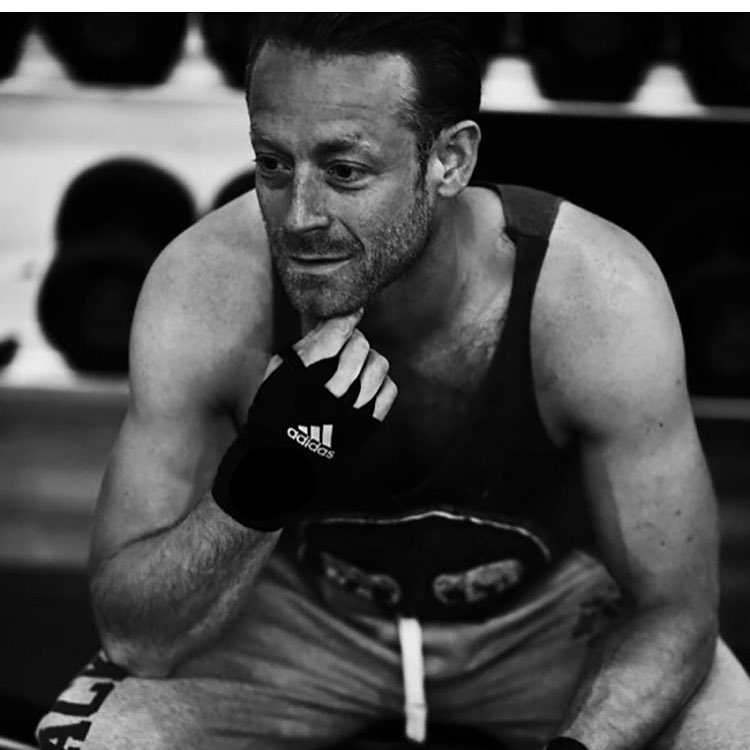
After dual success at Cardiff’s Principality Stadium in recent years, Anthony Joshua took on Andy Ruiz on Sat 1 June at New York’s Madison Square Garden, in what was expected to be a one-sided demolition by the London man. Instead, however, it was the 6’6” frame of Joshua that came crashing down to earth. The tremors of negativity could be felt right across the Atlantic, where fight fans had spent the 16 years since Lennox Lewis’ retirement longing for another homegrown hero to unify the top division.
Subsequently, social media was a frenzy of blame games and told-you-sos, and British heavyweight hopes had hit a new low. But in the post-fight press conference, the man himself was practical, positive and confident, as he told journalists, “I’m a soldier. Thick and thin, good and bad, always look forward, never back. That’s my mindset.” Showing similar mental toughness last year, Tyson Fury, following in the footsteps of fighters such as Ricky Hatton and Frank Bruno, bounced back from his suicidal behaviour after bravely admitting his battles with clinical depression.
This is a story that is repeated throughout the pages of boxing history. So what it is that Joshua, Fury and many other fighters find within themselves that helps them to overcome such devastating blows to their careers, their reputations and their health?
Welsh boxing champ Kieran Gething is a young man who has suffered very personal tragedy on his way to success, having lost his father in the same year he fought for a Welsh title. Kieran told Buzz:
“Boxing teaches you to suffer physical pain but it’s also mental. The winter mornings when you want to stay in bed, the sessions after work when you want to see your family, the years of graft in the amateurs with no money to show for it. Boxing teaches you to be tough on the inside.”
Kieran, like Fury and Joshua, has developed the superhuman mental strength necessary to become a champion – and to navigate life’s toughest obstacles – almost entirely through his dedication to boxing. The pain, it seems, has driven the pride. The anger has fed the ambition; the hard times have created the hunger for success.
Further to this, as Buzz was recently told by former world boxing champion (and current world boxing guru) Barry Jones, boxing teaches you discipline that can be applied far beyond the sport itself. “It gives you a structure that will set you up for the rest of your life. The importance of routine, self-control and willingness to keep on learning are lessons from boxing that I’ve taken into all other parts of my life.”
But whilst it seems evident that professional fighters can develop such extreme mental strength through their chosen discipline, can the same be said for the average person who chooses combat sport not as a career path but as a means of personal growth? Droves of people across the UK have headed to white collar boxing gyms in recent years, each testing their skill, their nerve and their chin, in a bid to answer just that question.
High-profile celebrities, too, have sought out the fighting life in order to escape the horrors of mental health failure. In a recent article on the topic, Prince Harry told the Guardian that after his mother’s death, he had felt “very close to a complete breakdown,” going on to say: “During those years I took up boxing, because it’s a really good way of letting out aggression.” Singer Ellie Goulding spoke in the same article about her use of boxing to overcome anxiety: “It wasn’t about any change in my outward appearance, it was about feeling myself get better and stronger.”
So what do the doctors say? Whilst staying realistic about the dangers involved in taking repeated hits to the head, most maintain a similar belief that combat sports can provide the outlet and the focus necessary to cope with mental health problems. Psychologist Felicity Gibbons told the netdoctor.co.uk website, “Boxing instils a sense of achievement, building confidence and self-esteem. Classes provide a controlled and safe environment to release any frustration, stress and anger.”
A 2009 study in China dug much deeper into this theory when researchers looked into the benefits of hexagram boxing (a non-contact form of tai chi based on martial arts kicks and punches) on patients with chronic schizophrenia. The results were astounding. The patients were able to go without their schizophrenia medication, relying purely on the natural benefits of this aggressive, but controlled, form of exercise whilst fully controlling their symptoms. The study (from researchgate.net) concluded: “Boxing training can improve effectively the cognition and negative symptoms of chronic schizophrenics.”
Whether you take your lifestyle advice from celebrities or doctors, it seems we could all benefit from the increased camaraderie, the physical exertion and the overall sense of personal achievement found in the boxing gym. But further to these staple benefits found in other sports, boxing also teaches us how to deal with failure, loss and the harsh realities of life. If you find yourself needing to let off some steam this summer, perhaps it’s time to consider swapping pints for punches.